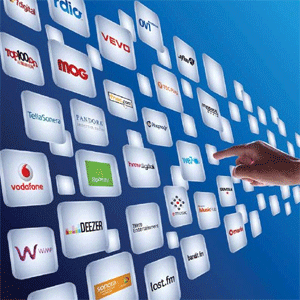 NEWS
NEWS
 NEWS
NEWS
 NEWS
NEWS
![]() Digital distribution and sales continue to move forward and have found themselves a bright niche in our Internet-connected world. As a result of having almost instant access to downloadable music and music services have caused people to flock to them and it’s obvious that people are extremely happy to spend their money on licensed music.
Digital distribution and sales continue to move forward and have found themselves a bright niche in our Internet-connected world. As a result of having almost instant access to downloadable music and music services have caused people to flock to them and it’s obvious that people are extremely happy to spend their money on licensed music.
In an article published on AllThingsD by Peter Kafka, a recently released survey by the International Federation of the Phonographic Industry (IFPI) [PDF] has revealed that global music digital sales increased by 8 percent last year. Apparently, this is the first time that statistic has grown since 2004 (when the IFPI started tracking that statistic.)
The current analysis suggests that a notable amount of this increase is from licensed music-subscription services such as Spotify and Deezer. In the report, the IFPI accounts for 32% of the music industry’s global revenues coming from digital music sales and ascribes 13 million paying users to paying users (up from 8 million last year.)
The cloud is also showing some penetration in the thoughts of music industry executives:
Afo Verde, president, Latin Region, Sony Music, says: “Broadband penetration in Latin America continues to grow and the region has become the number two cell phone market in the world, presenting a great opportunity to expand the digital music business. Subscription services are beginning to take root and we anticipate these will perform well, while download services will benefit from the rollout of cloud technology.”
We’ve seen cloud-technology affect digital segments across the board; in fact cloud-distributed gaming has been seeing a lot of expansion with a 40% increase over the past few years.
However, the IFPI, being a trade organization, has a strong bias involving piracy and wants vey much to make it out to be a much bigger boogeyman than it is. It uses the survey to speak not to the technologies that are enabling a greater number of people greater access to music (and thus makes them more likely to jump on board) but about how well legislation is working to curb music piracy.
If anything, this survey shows that people want to buy digital music, that subscription services are seeing a great deal of increase in subscriptions and people actively seek music there means that they’re not pirating it instead. In fact—add that when Spotify came to Sweden piracy went down 25%—it looks like the industry is managing to find what their audience wants and that’s reducing piracy far more than any legislation will ever be capable of.
In the words of Valve Software’s CEO Gabe Newell: “Piracy is almost always a service problem.”
Until the advent of the cloud and better service-based music platforms opens up devices and people to accessing and receiving music. With these services also comes increased quality and accessibility—things that piracy enables when the music industry fails to deliver—if instead of seeking legislation to buttress region locks, device-centric DRM, and anti-copying paradigms the music industry were to seek their audience instead they would probably find that when they open up to more devices and more people they will find more paying customers waiting there.
At least that seems to be the takeaway this survey has shown.
THANK YOU